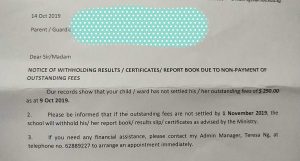Kuala Lumpur—On Tuesday, November 26, a 55-year-old woman from Sydney had an earlier conviction for drug trafficking overturned at the Federal Court in Kuala Lumpur and walked away free.
She had been in jail since 2014, having been arrested while traveling from Melbourne to Shanghai, where she was accosted by authorities for carrying more than a kilo of ice, which is a potent form of methamphetamine.
In 2018, she had been sentenced to death by hanging.
Maria Elvira Pinto Exposto, a former anti-human trafficking worker, claims to have been the victim of an international drug ring and deceived into smuggling illegal substances via a love scam.
A man purporting to be a US Army Captain named Daniel Smith, who said he was stationed in Afghanistan, had proposed to her. It was seen through Ms Exposto’s email exchanges with ‘Captain Smith’ that she had been asked to come to Shanghai to sign his army retirement papers prior to their marriage.
Ms Exposto and ‘Daniel’ were supposedly in love and had been in constant communication from 2013 to 2014.
She said, “I was blindly in love with Daniel. Every day he would sing love songs to me five times a day. He made me fall in love with him.”
However, the drug ring had been sending her fake photos and videos that they had stolen from a retired British naval officer.
When she got to China, she was asked by a man who said he was an army buddy of Captain Smith to bring the papers, as well as a bag of Christmas gifts, back home to Australia.
Ms Exposto told the Federal Court that she had initially not wanted to bring the bag with her, but the man had taken everything out of the bag to show her that only clothes were inside.
While in transit at Kuala Lumpur, she made the mistake of following exiting passengers and handed the bag to customs officers for inspection.
They found drugs sewn into the bag’s lining and Ms Exposto was promptly arrested.
In 2017, the Australian woman had already been declared not guilty, but prosecutors had appealed the verdict. The following year, she was convicted in a lower court since the judge was unconvinced that she had been a victim of a scam, and sentenced to death by hanging.
At her trial, Professor Monica Whitty from the University of Melbourne, the expert witness called by the defense, said that the Australian woman was a “textbook romance scam victim”.
Professor Whitty added, “I didn’t make up my mind until I went through all the data available and until I interviewed Maria. She didn’t have to have her bags checked. She volunteered.”
Ms Exposto may be coming home to her family in Sydney as early as Wednesday, November 27. She is now under the custody of Malaysia’s immigration department.
After the ruling, her lawyer, Shafee Abdullah said, “She is innocent. We always believed she is innocent. This is an illustration, how an innocent woman can be scammed on the internet.”
In the last three decades, three Australian nationals have been executed in Malaysia for drug trafficking, which has briefly affected diplomatic relations between the two nations. -/TISG
Read related: Death row convict writes gut-wrenching letter to President Halimah
Death row convict writes gut-wrenching letter to President Halimah

















